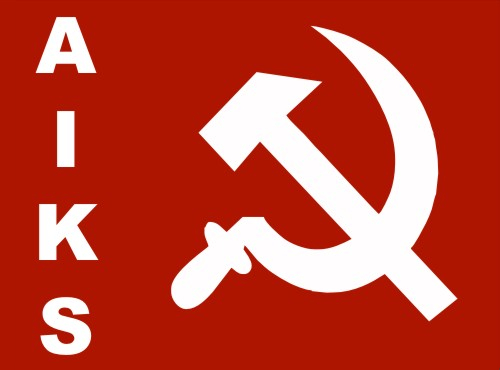OECD-ICRIER Report on Farm Situation: Correct Diagnosis, Wrong Medicine
- OECD-ICRIER Report Gives Away Modi’s False Claim of Doubling Farmers’ Incomes
- Vindicates AIKS Position that Farming is Not Profitable for Last 3 Decades
- OECD-ICRIER Report on Farm Situation: Correct Diagnosis, Wrong Medicine
- Issue White-Paper on 3 Decades of Neo Liberal Economic Policies and Reverse It
All India Kisan Sabha notes that the Organisation for Economic Cooperation and Development and Indian Council for Research on International Economic Relations (OECD-ICRIER) Report on the farm situation vindicates our position that the Neo Liberal Economic Policies have adversely affected the peasantry and accentuated the agrarian crisis in the country. The Report has rightly diagnosed that farming in India has been unproductive for two decades. According to the Report the gross farm revenues fell 14 percent on average between 2000 and 2016. According to the Report ‘Agriculture Policies in India’ India is only one of three countries (of the 26 tracked) where farmer income has remained in the unproductive range for nearly two decades. It has also noted that in the period between 2014 and 2016 gross farm revenue fell by 6 percent per year. For unexplained reasons it does not speak about the fall in incomes post the Modi-made disaster of demonetisation.
The Report diagnoses the hopeless farm situation and problem of shrinking farm incomes correctly but comes with a call for a higher dosage of the wrong medicine. It calls for acceleration of existing policies and for cut in subsidies for agricultural inputs like fertilisers, power and irrigation. It points out the situation of falling agricultural incomes because of low market prices after Narendra Modi led BJP Government came to power but does not prescribe assured remunerative prices as per the Swaminathan Commission recommendations. The removal of controls over agricultural inputs in the name of deregulation has led to agribusinesses fixing exorbitant prices. This is a significant factor responsible for the increasing costs of production and falling returns in the context of reduced State support. The prescription of the OECD-ICRIER is that input subsidies should be frozen and gradually withdrawn altogether.
The Report states claims that complex domestic market regulations and trade restrictions, together lead to producer prices that are below comparable international market levels while calling for its removal. The prescription clearly is for complete trade liberalisation. It has ignored experiences of States like Kerala and of farmers growing commercial crops due to dumping of cheap crops from other countries with which India has had Free Trade Agreements. The Report also calls for greater encouragement to the private sector in agricultural marketing. It calls for further reduction of tariffs and other restrictions on imports. It also prescribes that even food subsidies should be either targeted lump-sum transfers (DBT) or a food stamp type of mechanism. The prescriptions of OECD-ICRIER are clearly aimed to leave the peasantry at the mercy of the market and for intensifying liberalisation and privatisation.
AIKS calls upon all to remain vigilant about the Trojan Horse recommendations of the OECD-ICRIER on the pretext of addressing the agrarian crisis. It is preparing the ground for intensification of Neo-Liberal economic policies which in the first place were responsible for the massive farmers’ suicides in the country. AIKS will resist such moves by building the broadest unity against it.
Sd/-
Ashok Dhawale, President
Hannan Mollah, General Secretary

